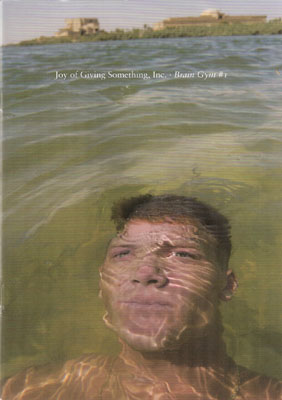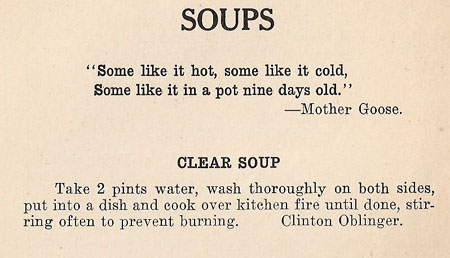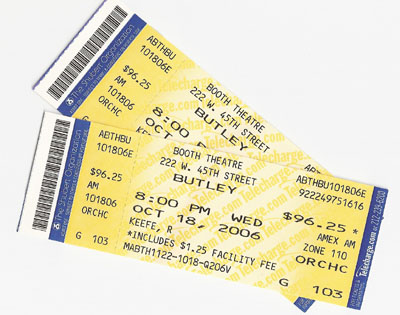In which we have a look at this week's
New York Times Book Review.
There's a lot of fiction this week, but the strong reviews are
on the other side of the divide, with no less an eminence than Henry Kissinger
reviewing the new book about Dean Acheson. Daniel Mendelsohn's review of The
Discomfort Zone is, in contrast, a disgrace to the Book Review.
I'll bet that Sena Jeter Naslund and her people didn't expect
her Marie Antoinette book to be covered in the Review.
Fiction
One of the small payoffs of reviewing the Book Review is
learning what to expect of certain reviewers. Erica Wagner, literary editor of
The Times of London, is either nasty or unsympathetic in three of the
four reviews that she has contributed to the Review since I started
paying attention; either way, she is never entirely intelligible. Make that four out of five. Her review of Edna O'Brien's
The Light of Evening is unsympathetic. The review is a mix of storytelling and slapdown. It is
also useless.
Elissa Schappell does a little better by Joyce Carol Oates. She
storytells Black Girl/White Girl for a few paragraphs before settling
into what one feels is the inevitable judgment.
By now, it's a cliché to comment on the
rate at which Oates turns out books, making Trollope look as if he was
writing in handcuffs. Still, this one feels rushed to a conclusion.
Meg Wolitzer's review of "''old fashioned' novelist" Edward
Bausch's Thanksgiving Night is itself somewhat old-fashioned.
... Richard Bausch displays a bracing, unapologetically
old-fashioned sensibility. Using the time-honored tradition of putting a
holiday in a strategic narrative position, he shows us the insular,
byzantine world of a family and its assorted friends and neighbors in the
fictional town of Port Royal, Va, on the way to "the last Thanksgiving of
the century."
That, together with a nice
chunk of writing from the novel itself - which Ms Wolitzer does not include -
would really be all the review anyone needed. Myla Goldberg gives Chris Adrian's
The Children's Hospital a glowing, if qualified, review. The novel takes
place in the future and conjoins science fiction with magic realism.
A literary work that employs the supernatural must allow magic to
further its ends without permitting it to hijack the boat. The Children's
Hospital manages this at the outside, but stumbles further on. .... In
Adrian's attempt to paint the big picture, depth of character is too often
sacrificed.
But Ms Goldberg hails "the
exciting process of watching a talented and original writer gain mastery of his
powerful gifts."
Moral Disorder: Stories is the latest book from Margaret
Atwood, and reviewers have generally detected an autobiographical element in the
collection, as if Ms Atwood were summing up a lifetime for a change, instead of
imagining apocalypses. Alice Truax writes, instead,
Atwood is coy about the stories' relationship to one another in a
way that proves slightly tricky for the reviewer but stimulating for the
reader. They aren't explicitly about the same woman at different stages of
her life, but - as one gradually, tantalizingly realizes - they could be,
and the fact that the collection is studded with references to doors and
tunnels is hardly accidental. The first time through, then, its heroines
lean in toward one another, reaching out to clasp hands as the reader
stumbles over bits of their shared history. ... Upon rereading, however, one
is struck by the stories' integrity - and how different these girls and
women are from who they wee or who they might later become ... Atwood's
reticence gestures toward the fractured nature of identity, and how swiftly
that identity can change.
Ms Truax gets
top marks for conveying a sense of what reading Moral Disorder might be
like.
I suspect that Steven Heighton could have used more space for
his review of Sebastian Faulks's Human Traces, an historical novel in
which a Frenchman and an Englishman tie up to approximate, so to speak, the
career of Sigmund Freud. The telltale sentence comes at the end of the review.
Although Human Traces is beset with problems, the novel is
no failure. A generosity of vision, an integrity of intelligence and feeling
lift it above the level of its own elements.
We oughtn't to have to take Mr Heighton's word for it. Instead of storytelling
Mr Faulks's three-decker plot (and making it sound somewhat ridiculous in the
process), Mr Heighton ought to have focused on that "integrity of intelligence
and feeling," taking care to provide us with corroborative passages from the
novel.
Geoff Nicholson's bemused review of Giraffe, by J M
Ledgard, is one of the more entertaining pieces in this week's Review.
Nobody is going to accuse J M Ledgard of lack of ambition, and in
an age of timid and modest novels this is a virtue. The book is often
overwritten and sometimes pretentious, but Ledgard is an interesting and
serious writer, and his book remains in the mind, even if you don't entirely
want it to. I was continually reminded of Harold Bloom's remark about all
great books being strange: Ledgard has certainly got half the equation
right. I can safely say I've never read anything like Giraffe, and,
on balance, and it's a fine balance, I think I mean that as a compliment.
Mr Nicholson notes that Mr Ledgard's improbable tale is in fact based on actual
events.
Finally, there's Bedlam, by Craig Hollingshead, another
historical novel. Andrew Sean Greer's judgment is clear:
Hollingshead's elegant, heartfelt writing and smart research
almost make up for the novel's oddly static feeling. The author seems too in
love with the past to be willing to take liberties with it.
A new novel about Marie Antoinette, reviewed together with a new book about the
queen's wardrobe, will be mentioned below.
Nonfiction
This week cover goes to former Secretary of State Henry A
Kissinger's review of Dean Acheson: A Life in the Cold War, by Robert L
Beisner. Mr Beisner has every reason to be happy with the review, as might the
shade of Acheson himself.
Acheson emerges from the Beisner book as the greatest secretary
of state of the postwar period in the sweep of his design, his ability to
implement it, the extraordinary associates with whom he surrounded himself
and the nobility of his personal conduct.
Mr Kissinger ends the review with a discreet finger-wave at his current
successor and her boss. John Leland gives a grudgingly admiring review to
Through the Children's Gate: A Home in New York, Adam Gopnik's latest
collection of essays. "He is at times too good a writer, but never less than an
acute reader," writes Mr Leland. Too good a writer?*
Bill Bryson has added The Life and Times of the Thunderbolt
Kid: A Memoir to his shelf, and Jay Jennings gives it a very favorable
review that is not short on judgment.
As a humorist, Bryson falls somewhere between the one-liner
genius of Dave Barry and the narrative brilliance of David Sedaris. He's not
above sublime low fat and feces jokes, but at his best he spools out
operatically funny vignettes of sustained absurdity that nevertheless remain
grounded in universal experience. These accounts, like the description of
the bumper-car ride at a run-down amusement park or the tale of a friend's
father's descent from the high dive at a local lake, defy excerpting; when
taken whole, they will leave many readers de-couched.
Elizabeth Royte, whose last book was about garbage disposal,
praises Colin Tudge, author of The Tree: A Natural History of What Trees Are,
How They Live, and Why They Matter, for taking a "sudden and uncompromising
political turn" toward the end of his interesting book. "Tudge is courageous to
take this stand and risk alienating readers who've stuck with him throughout
solely for the love of trees and his enchanting way of writing about them."
Jacob Heilbrunn reviews Hubris: The Inside Story of Spin,
Scandal, and the Selling of the Iraq War, by Michael Isikoff and David Corn
with judicious storytelling - one of the few instances that hasn't made me
complain.
They show that in many ways the administration became the dupe of
its own propaganda. Though their narrative spins out of control by the end,
much of the book makes for fascinating reading.
Although "fascinating" wouldn't be my word. A few pages later,
The
Architect: Karl Rove and the Master Plan for Absolute Power, by James Moore
and Wayne Slater, gets rather less sympathetic treatment by Nicholas Confessore,
who asks, not unreasonably, why we go on thinking of Karl Rove as a big success
when the administration and even the Republican Party are so beleaguered. "The
authors depict the decline in Rove's fortunes toward the end of their account,
but they never really square it with their belief in his near infallibility."
On facing pages, we have Louis XIV and Marie Antoinette.
Antonia Fraser's Love and Louis XIV: The Women in the Life of the Sun King
gets a pass from Megan Marshall, who somewhat ungraciously fails to mention
Nancy Mitford's evidently better book. "While Love and Louis XIV doesn't
quite measure up to the high standards of synthesis and narrative propulsion of
her best work, the book is still entertaining and instructive." Liesl
Schillinger takes on Queen of Fashion: What Marie Antoinette Wore to the
Revolution, by Caroline Weber, and a novel,
Abundance: A Novel of Marie
Antoinette, by Sena Jeter Naslund. Ms Schillinger really likes the former:
In Queen of Fashion, her suspenseful, remarkably
well-documented and surprisingly humanizing account of the role style played
in Marie Antoinette's fate and legacy, Caroline Weber, who teaches at
Barnard College and is an expert on the Terror, adds texture, shimmer and
dept4h to an icon most of us thought we knew already.
Perhaps because of the coincidence of Sophia Coppola's film's release, Ms
Schillinger is permitted some almost egregious storytelling about Marie
Antoinette, going on for three lengthy final paragraphs, la nuit de Varennes
included, while making just one small reference to Ms Weber's book. As to Ms
Naslund's offering, it merits two sentences overall, with a reference to Barbara
Cartland in the first and another to Forever Amber in the second.
It's no surprise that Douglas Brinkley indulges in a lot of
storytelling in his review of Johnny Cash: The Biography, by Michael
Stressguth, but his sins are partially redeemed by clear judgment.
What makes this so valuable a biography is that Streissguth, an
associate professor of English at Le Moyne College in Syracuse, debunks the
myths that have enveloped Cash. ... Although Streissguth is not the literary
equal of Peter Guralnick (Elvis Presley) or Elijah Wald (Robert Johnson), he
avoids the gush-and-awe of Rolling Stone and Spin. ... The
amount of new archival material he unearths, however, is truly impressive.
Virginia Heffernan is vastly less taken with A Futile and Stupid Gesture: How
Doug Kenney and National Lampoon Changed Comedy Forever, by Josh Karp. Ms
Heffernan all but dismisses the book with a sigh of "You had to be there." She
does suggest that Kenney was one of those whose people, to understand whose
"allure," "Maybe you had to know them." Equally telling, however, is her praise
of a writer who she feels is somewhat shortchanged by Mr Karp's book, P J
O'Rourke. She writes that he is "more reliably funny" than his old colleagues.
Yes, but only if you like really sour humor.
I have saved for last Daniel Mendelsohn's totally inexcusable
hatchet job on Jonathan Franzen's The Discomfort Zone: A Personal History.
Anybody who follows this blog knows that I'm an admirer of Mr Franzen and his
work, and I would take issue with Mr Mendelsohn's judgments wherever they
appeared. But they do not belong in the form of a book review in the Book
Review. Mr Mendelsohn is attacking not so much a book here as a line of
thinking about personal writing. The Discomfort Zone is a pretext for Mr
Mendelsohn's distaste for something else altogether, and his piece is strewn
with hints at what this might be. For one thing, he has not one entirely
positive statement to make about the book. The sheer implausibility of such a
dismissal suggests that ideology of some kind is at work. And he is also pretty
mean, not about the book but about the author.
"Almost every young person experiences sorrows," he rightly
points out at the beginning of his exegesis of Peanuts - a sentence
that gives you hope that the geeky child still hiding in the adult Franzen
is going to admit that, like everyone else, he loved Peanuts because
he, too, identified with the perpetual awkward, perpetually failed, and yet
just as perpetually optimistic Charlie Brown. But no..."
This is bullying, not criticism.
Franzen, like most of us, is very likely an awkward combination
of Charlie and Snoopy; the difference being that whereas most of us
[emphasis added] think of ourselves as Charlie with a bit of Snoopy, Franzen
clearly doesn't mind coming off as a whole lotta Snoopy with the barest
soupçon of Charlie: a person, as this lazy and perverse book demonstrates,
whose very admissions of weakness, of insufficiency, smack of showboating,
of grandiose self-congratulation. For my part, I'll stick with Charlie. Who,
after all, wants the company of a character so self-involved he doesn't even
realize he's not human?
Mr Mendelsohn is
too old for this sort of gleeful savagery. He ought to know that, when you
really can't stand somebody, the best thing is to keep a distance. He is
entitled to be rubbed the wrong way by Jonathan Franzen. He is not entitled to
parade his evaluation of Mr Franzen's personal defects in the pages of a
national book review. This was a commission that he ought firmly and immediately
to have declined.
Henry Alford's "Essay" is yet another bit of pastiche: two
obituaries cut and pasted from those of famous writers, a (male) "Impossible
Author" and a (female) "Difficult Writer." Mr Alford has done better.
* Not that I don't know what Mr Leland is
"complaining about." I know of no writer who approaches Mr Gopnik when it
comes to making me despair of ever attaining mastery of this craft.





